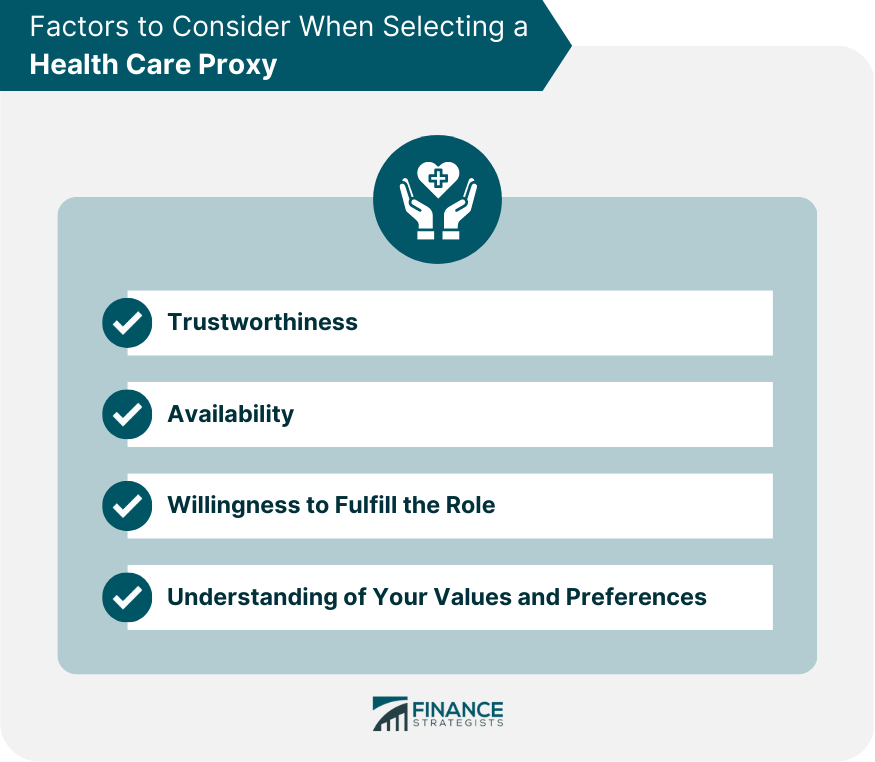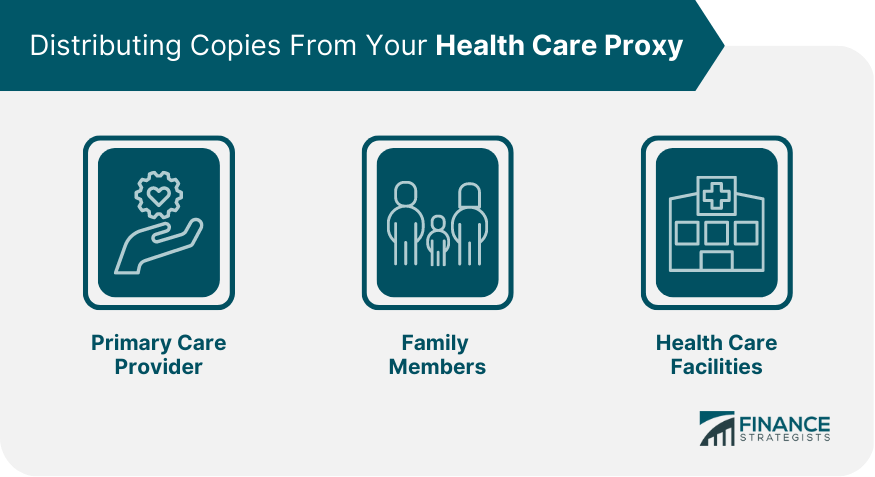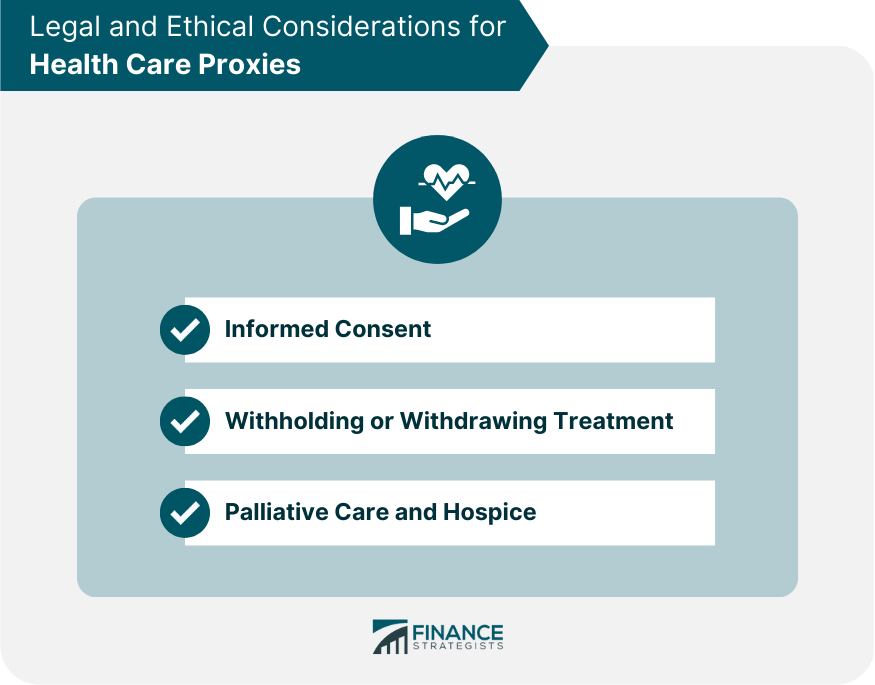A health care proxy is a legal document that appoints an individual, referred to as a health care agent, to make medical decisions on your behalf if you become unable to do so yourself. The purpose of having a health care proxy is to ensure that your medical preferences are honored and respected during times of incapacity. Having a health care proxy is essential for preserving your autonomy in medical decision-making. It allows you to designate someone who knows and understands your values and preferences to make important decisions on your behalf. In the absence of a health care proxy, these decisions may fall to family members or medical professionals who may not be fully aware of your desires. Health care proxies are regulated by state laws, which may vary in their requirements. However, most states mandate that the individual designated as your proxy be at least 18 years old, and that the document be signed by you and witnessed by two individuals who are not designated as proxies. When selecting a health care proxy, consider the following factors: Choose someone you trust to make decisions that align with your values and wishes. Select an individual who is likely to be available and reachable in a medical emergency. Ensure that the person you choose is willing to take on the responsibility of being your health care proxy. Pick someone who is knowledgeable about your medical preferences and values to ensure that they can make informed decisions on your behalf. If you are unable to identify a single suitable proxy, consider the following alternatives: You can designate two or more individuals to serve as co-proxies, who must collaborate to make decisions on your behalf. You can appoint a primary proxy and a successor proxy, with the successor stepping in if the primary proxy is unable or unwilling to fulfill their duties. To help your proxy make informed decisions, discuss the following topics: Share your overall approach to medical treatment, including your preferences for aggressive or conservative interventions. Discuss your thoughts on specific medical procedures, such as resuscitation, mechanical ventilation, and artificial nutrition. Communicate any religious or personal beliefs that may influence your medical decision-making. Consider discussing the following potential scenarios with your proxy: Outline your preferences for treatment in the event of a terminal illness. Share your thoughts on the continuation or withdrawal of treatment if you were to enter a persistent vegetative state. Discuss your preferences for care in the case of a severe brain injury. To help your proxy make informed decisions, provide them with the following resources and support: Create an advance directive, a legal document outlining your medical preferences in specific situations. Encourage your proxy to consult with medical professionals when making decisions. Inform your proxy about the legal and ethical aspects of decision-making in your jurisdiction. To create a valid health care proxy, complete the following steps: Consult your state's laws and regulations to ensure that your health care proxy meets all legal requirements. Obtain signatures from two witnesses who are not designated as proxies. Some states require notarization of the health care proxy document. Consult your state's laws to determine if this applies to you. To ensure that your health care proxy is accessible when needed, distribute copies to the following individuals and organizations: Provide a copy to your primary care physician to be included in your medical records. Share copies with close family members so they are aware of your wishes and the identity of your proxy. Provide copies to any health care facilities where you regularly receive treatment. Regularly review and update your health care proxy documentation to reflect: Update your document if your medical preferences or values change. Revise your proxy document to address any new medical conditions or diagnoses. If your proxy's circumstances change, such as moving away or becoming unable to fulfill their duties, update your document accordingly. During end-of-life care, your health care proxy will be responsible for: Your proxy will communicate with your medical team to ensure that your preferences are respected. Your proxy will advocate for your preferences and ensure that your wishes are honored. In the event of disagreements among family members or medical professionals, your proxy will work to resolve conflicts and uphold your preferences. When making end-of-life decisions, your proxy should be aware of the following legal and ethical considerations: Your proxy should ensure that they have adequate information to make informed decisions on your behalf. Your proxy should understand the legal and ethical implications of withholding or withdrawing treatment. Your proxy should be knowledgeable about palliative care and hospice options and be prepared to make decisions regarding these services. Planning for future health care decisions is essential to ensure that your medical preferences are respected and honored during times of incapacity. Having a health care proxy provides you with a trusted individual who will make medical decisions on your behalf, safeguarding your autonomy and ensuring your preferences are followed. It is important to discuss your medical preferences with your health care proxy and document them in a legally valid manner. Regularly review and update your documentation to ensure it remains accurate and relevant.What Is a Health Care Proxy?
Choosing a Health Care Proxy
Factors to Consider When Selecting a Proxy
Trustworthiness
Availability
Willingness to Fulfill the Role
Understanding of Your Values and Preferences

Alternatives to a Single Proxy
Co-proxies
Successor Proxies
Communicating With Your Health Care Proxy
Discussing Your Medical Preferences
General Treatment Philosophy
Specific Medical Interventions
Personal and Religious Beliefs
Addressing Potential Scenarios
Terminal Illness
Persistent Vegetative State
Severe Brain Injury
Providing Resources and Support
Advance Directives
Health Care Professionals
Legal and Ethical Considerations
Creating and Updating Your Health Care Proxy Documentation
Required Legal Forms
State-Specific Requirements
Witness Signatures
Notarization
Storing and Distributing Copies
Primary Care Provider
Family Members
Health Care Facilities

Periodic Review and Updates
Changes in Personal Preferences
New Medical Conditions
Changes in Proxy's Circumstances
Health Care Proxy and End-Of-Life Care
Role of the Proxy in Decision-Making
Interacting With the Medical Team
Advocating for Patient’s Preferences
Resolving Conflicts
Legal and Ethical Considerations
Informed Consent
Withholding or Withdrawing Treatment
Palliative Care and Hospice

Conclusion
Health Care Proxy FAQs
A health care proxy is a legal document that allows you to appoint someone to make medical decisions on your behalf if you are unable to do so. This person is known as your proxy or agent, and they have the authority to make decisions based on your wishes, beliefs, and values.
Everyone over the age of 18 should have a health care proxy. Accidents and unexpected illnesses can happen to anyone, regardless of age or health status. Having a health care proxy ensures that your wishes are respected and that someone you trust is making medical decisions on your behalf if you are unable to do so.
Choosing a health care proxy is a personal decision that should be made carefully. You should choose someone who knows you well, understands your values and beliefs, and is willing and able to make decisions on your behalf. It's important to discuss your wishes with your proxy in advance, so they know what you would want in various medical situations.
Yes, you can change your health care proxy at any time. If you change your mind about who you want to make medical decisions on your behalf, you can revoke your current proxy and appoint a new one. You should make sure to notify your current proxy and any healthcare providers of the change.
No, you do not need a lawyer to create a health care proxy. However, it's important to make sure that your proxy document meets the legal requirements in your state. You can find health care proxy forms online or through your healthcare provider, and you should make sure to sign and date the document in the presence of witnesses or a notary public as required by your state's laws.
True Tamplin is a published author, public speaker, CEO of UpDigital, and founder of Finance Strategists.
True is a Certified Educator in Personal Finance (CEPF®), author of The Handy Financial Ratios Guide, a member of the Society for Advancing Business Editing and Writing, contributes to his financial education site, Finance Strategists, and has spoken to various financial communities such as the CFA Institute, as well as university students like his Alma mater, Biola University, where he received a bachelor of science in business and data analytics.
To learn more about True, visit his personal website or view his author profiles on Amazon, Nasdaq and Forbes.











